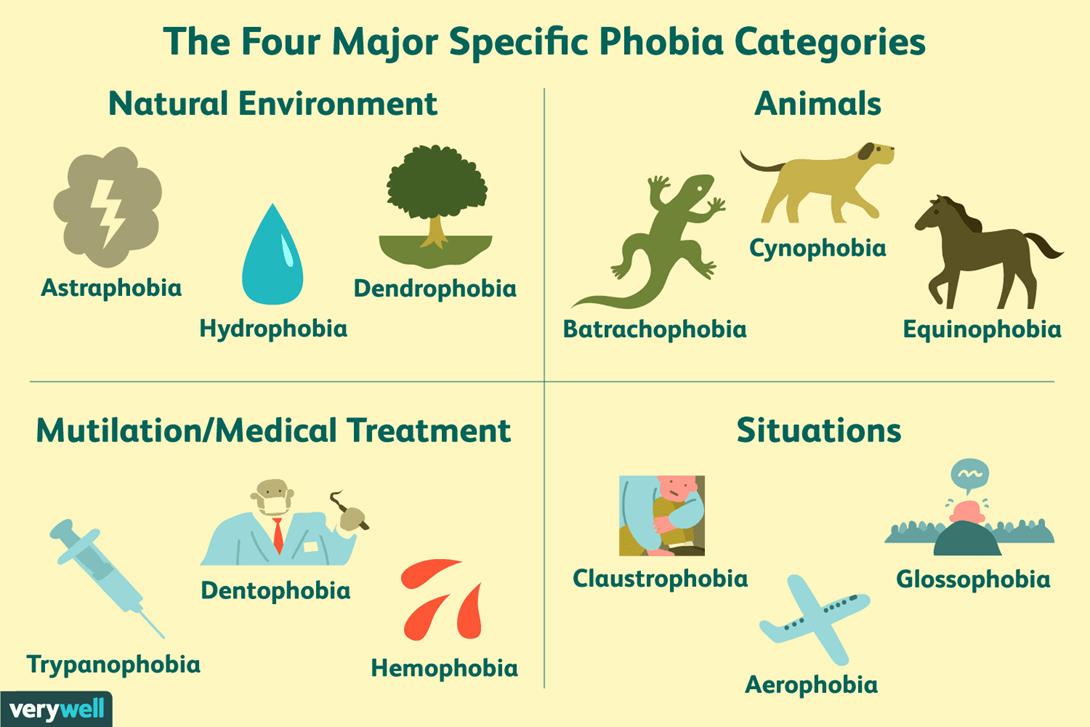A nurse is providing care to a client with a situational phobia. Which techniques would the nurse most likely include as an intervention in the client's plan of care? (Select all that apply.)
Assertiveness training.
Systematic desensitization.
Flooding.
Decatastrophizing.
Reminding the person to calm down.
Correct Answer : B,C,D
Choice A reason: Assertiveness training is not a direct intervention for situational phobias, although it may help improve overall confidence.
Choice B reason: Systematic desensitization is a common technique used to treat phobias, where the client is gradually exposed to the fear-inducing situation in a controlled manner.

Choice C reason: Flooding is an exposure technique where the client is exposed to a high level of fear-inducing stimuli all at once, which can be effective for some phobias.
Choice D reason: Decatastrophizing helps clients challenge and change catastrophic thoughts that often accompany phobias.
Choice E reason: Simply reminding a person to calm down is not a therapeutic technique and is unlikely to be effective for someone with a situational phobia.
Nursing Test Bank
Naxlex Comprehensive Predictor Exams
Related Questions
Correct Answer is D
Explanation
Choice A reason: Gastric lavage is not indicated in this scenario as the client's lithium level is not extremely elevated. Gastric lavage is typically reserved for cases of acute lithium toxicity when levels are significantly higher than the therapeutic range.
Choice B reason: There is no need to hold the medication as the lithium level is within the normal therapeutic range, which is generally between 0.6 to 1.2 mEq/L. Early manifestations of toxicity typically occur at levels above 1.5 mEq/L.
Choice C reason: Checking the client's medication record is a standard procedure but does not take precedence over administering the medication. The lithium level indicates that the client has been compliant with the medication regimen.
Choice D reason: The nurse should administer the morning dose of lithium because the current level is within the therapeutic range, indicating that it is safe to continue the prescribed treatment.
Correct Answer is ["A","B"]
Explanation
Choice A reason: Elevated prolactin levels can lead to galactorrhea, which is the production of breast milk in individuals who are not breastfeeding.

Choice B reason: Gynecomastia, the enlargement of breast tissue in males, can also be a symptom associated with high prolactin levels.
Choice C reason: Social withdrawal is a symptom of Schizophrenia but is not directly related to elevated prolactin levels.
Choice D reason: Apathy can be a symptom of Schizophrenia but is not directly related to elevated prolactin levels.
Choice E reason: Anhedonia is a symptom of Schizophrenia but is not directly related to elevated prolactin levels.
Whether you are a student looking to ace your exams or a practicing nurse seeking to enhance your expertise , our nursing education contents will empower you with the confidence and competence to make a difference in the lives of patients and become a respected leader in the healthcare field.
Visit Naxlex, invest in your future and unlock endless possibilities with our unparalleled nursing education contents today
Report Wrong Answer on the Current Question
Do you disagree with the answer? If yes, what is your expected answer? Explain.
Kindly be descriptive with the issue you are facing.
